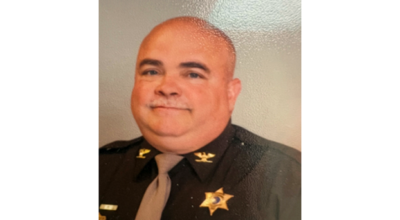Pop culture leads off SMC spring speaker series
Published 9:20 am Wednesday, January 6, 2016
“It’s Not About the Zombies! Justifying Your Pop Culture Obsession Using the Popular Culture Formula” leads off Southwestern Michigan College’s spring academic speaker series Tuesday, Jan. 26, at 2:30 p.m. in the theatre of the Dale A. Lyons Building on the Dowagiac campus.
The free public program by SMC communications professors Natalie Anagnos and Dr. Maria DeRose, with a back-up Feb. 2 snow date, will be broadcast to the Niles Campus commons.
With a set inspired by AMC’s “Talking Dead,” the aftershow Chris Hardwick hosts for “The Walking Dead” that serves as a platform for fans to dissect the enormously popular zombie apocalypse series, the two women incorporate cinematography, hero narratives, the Zeitgeist and transitory values.
“One of my favorite things about my job is because I teach pop culture I get to justify all of my obsessions,” DeRose said. “Watching trashy TV? Research! Watching bad movies or reading romance novels? Research! Natalie and I get a lot of grief, but using pop culture in the classroom is part of my dissertation — science fiction specifically.”
The musically obsessed could read the 20-year-old novel “High Fidelity” by Nick Hornby about Rob Fleming, owner of the Championship Vinyl record store.
“There is some serious academic stuff going on here,” adds Anagnos. “We’re supplying tools for everyone to justify what they watch. We hope you get enough of the theory to be able to apply it to whatever your obsession is. We thought we’d do a guided practice to apply to other works such as ‘Harry Potter’ or “Dexter,’ ” Showtime’s eight-season series about a Miami blood spatter expert who leads a double life as a serial killer, adhering to a code to only murder the guilty.
“Why something is popular can be represented as a house,” DeRose said. “Foundation values like democracy, freedom and independence never change. In the basement, transitory values change about every decade or so. Zeitgeist is the spirit of an era. How do we feel about the government? About technology? Do we feel generally optimistic or pessimistic about the future? Tapping into the Zeitgeist can be our fears or our hopes for the future.”
“That’s why you see a proliferation of a certain type of show during a 10-year period,” such as zombies’ popularity or post-apocalyptic graphic novels spawned by Y2K anxiety.
“Main rooms of the house of pop culture are not all entertainment. That’s only one room — another is rights and rituals — but they interconnect. ” DeRose said. “We’ll talk about how something has to be familiar, yet have a twist, such as there are elements of westerns in the ’The Walking Dead.’ Cowboys always represent the line between civilization and the wilderness,” even if it’s Deputy Sheriff Rick Grimes on horseback on the outskirts of Atlanta.
“Another thing we’re going to talk about is identification,” DeRose said. “Anyone can come from nothing, rise to great heights and become the hero. Or, maybe you’re an anti-establishment rogue. Thinking about who you would want to be and what you would do leads into the next section, participatory fan culture that creates a community. We don’t watch in isolation.”
If the ’50s was the Age of Conformity, the ’60s the Age of Youth Rebellion, the ’70s the Me Decade, the ’80s the Greed Decade, what is the Zeitgeist of the new millennium and the metaphor zombies represent?
The Age of Technology (and the Y2K fear of having it all taken away)? Fear of terrorism, not knowing whom to trust and not knowing if we’re on the brink of World War III in our post-911 age?
One of the presenters’ favorite things about “The Walking Dead” is discussions each episode engenders about larger issues.
What is humanity? What is living, not just surviving? What is justifiable violence when the world has new rules? What old rules, morals, religion and government aspects still work in this new world? What is the best way to re-establish “civilization?”
“Who should we really be afraid of? Zombies or humans?” asks Anagnos. “Last spring, to get students to think more critically, I incorporated ‘The Walking Dead’ into freshman comp and got some of the best writing ever because they were engaged.”






